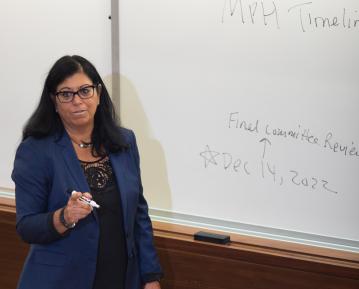The Master of Science in Genome Bioinformatics program prepares students for careers analyzing the human genome both in academia and in pharmaceutical and genomic testing industries. Graduates will meet the growing need for computational analysts with expertise in manipulating, annotating, and interpreting human genome data.
Students can take advantage of resources and research opportunities afforded by other health science schools, especially Pitt Medicine, where researchers are carrying out cutting-edge genomic studies using next-generation sequence data and bioinformatics tools and methods.
Graduates are experts in applying computation tools for studying and interpreting the human genome in a future where genomics is central to precision medicine and biomedical research.



